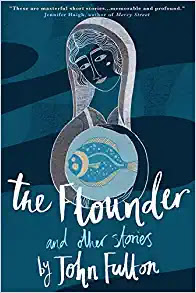The Red Letters
In ancient Rome, feast days were indicated on the calendar by red letters. To my mind, all poetry and art serves as a reminder that every day we wake together beneath the sun is a red-letter day.
– Steven Ratiner
Dear Reader,
I’m on the road teaching this week, so here’s a Flashback Friday Red Letter you may have missed; it first appeared during the early days of this project.
I’ll be back with a new Letter next week.
Enjoy!
Red Letter Poem #31
Not the least of poetry’s strengths (and delights) is its ability to allow us access to another reality: to stand for a few moments in someone else’s shoes, viewing the day through a surprising sensibility, our thoughts informed by a radically different sense of history. This is one of the first things that attracted me to the poetry of Adnan Onart. I will never experience the pain inflicted on Crimean Tatars as their country suffered invasions – vivid still in the long memories of his Turkish family – though some of his poems provide me with a mouthful of that anguish. Nor can I feel those American eyes at my back in some street or market – in this, our post-9/11 circumstance – triggered only by the accent of my voice; but Adnan’s poetry has made me imagine what that tremor must be like. Poetry confirms what most of us have long suspected: that our lives are dramatically different from each other and, paradoxically, utterly alike. So it is with “Morning Prayer” – a poem that somehow reminded me of voices as disparate as that of Yehuda Amichai and Wislawa Szymborska. When the young protagonist is instructed in the ways of prayer, I found something of my eight-year-old self re-awakened, and I remembered what I first yearned for in the world. And when the much older speaker (an immigrant now in Boston) repeats that same gesture, I suddenly felt how sweet and unpredictable is the nature of our answered prayers.
Adnan lives in Boston, MA. and his work has appeared in a number of journals including Prairie Schooner, Colere Magazine, Red Wheel Barrow, and The Massachusetts Review. ”Morning Prayer” was published in his first poetry collection, The Passport You Asked For (The Aeolos Press), coupled with Kenneth Rosen’s Cyprus’ Bad Period. He earned an honorable mention in the New England Poetry Club’s Erika Mumford Award, and was one of the winners of the 2011 Nazim Hikmet Poetry Competition. Discouraged from poetry as a young man in Turkey, he has now begun to find an appreciative audience in his adoptive land. Talk about paradoxes.
Morning Prayer
In a poor Istanbul neighborhood,
at the ground floor of our house,
my great-grandmother says:
It is time for morning prayer.
If you pray, she says, pure as a child,
from this corner of the room,
an angel will appear.
I am five years old closing my eyes.
Allahü Ekber.
Essallamü alleyküm ve rahmetullah.
I am fifty opening my eyes.
In Boston, Massachusetts,
in a not so poor neighborhood
at the top floor of our house
praying my morning prayer.
From that corner of the room,
my great-grandmother appears.
–– Adnan Adam Onart
The Red Letters 3.0
* If you would like to receive these poems every Friday in your own in-box – or would like to write in with comments or submissions – send correspondence to:
steven.arlingtonlaureate@gmail.com
* To learn more about the origins of the Red Letter Project, check out an essay I wrote for Arrowsmith Magazine:
https://www.arrowsmithpress.com/community-of-voices
and the Boston Area Small Press and Poetry Scene
http://dougholder.blogspot.com
* For updates and announcements about Red Letter projects and poetry readings, please follow me on Twitter
@StevenRatiner




































